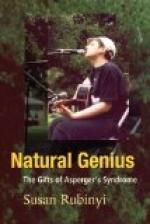The landscape appropriate to thanksgiving is not furnished by brick walls and stone pavements. It is a rural festival. The smoke from scattered cottages should be slowly curling its way through frosty air. As we look forth from the low porch of the homestead, the ground lightly covered with snow, stretches off to a not distant horizon, broken irregularly with hills, clothed in spots with evergreens, but oftener with bare woods. The distant and infrequent sleigh-bells, with the smart crack of the rifle from the shooting match in the hollow, strike percussively upon the ear. Vast piles of fuel, part neatly corded, part lying in huge logs, with heaps of brush, barricade the brown, paintless farmhouses. Swine, hanging by the ham-strings in the neighboring shed; the barn-yard speckled with the ruffled poultry, some sedate with recent bereavement, others cackling with a dim sense of temporary reprieve; the rough-coated steer butting in the fold, where the timid sheep huddle together in the corner; little boys on a single skate improving the newly frozen horse-pond—these furnish the foreground of the picture during the earlier hours of the morning. Later in the day, without, the sound of church bells, the farmers’ pungs, or the double sleighs, with incredible numbers stowed in their strawed bottoms, drive up to the meeting-house door. An occasional wagon from the hills, from which the snow has blown, with the crunching, whistling sound of wheels upon snow, sets the teeth of the crowd in the porch on edge, as it grinds its way to the stone steps to deposit its load. Great white coats, with seven or eight capes apiece, dismount, and muffs and moccasins—each a whole bearskin—follow. Long stoves, with live coals got at the neighboring houses, occasionally join the procession. Few come afoot; for our pious ancestors seemed to think it as much a part of their religion to fill the family horse-shed as the family pew; and in good weather would send a mile to pasture for the horses to drive a half mile to meeting. But, meeting out, the parson’s prayer and sermon said, the choir’s ambitious anthem lustily sung, the politics of the prayer, and the politics of the




